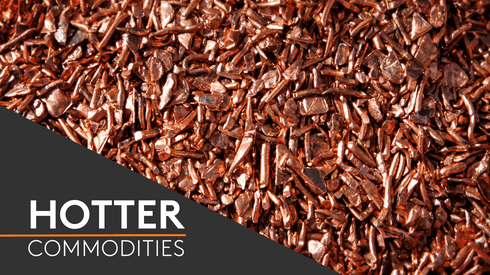Arnaud Soirat told Fastmarkets in an interview during the annual CESCO week in Santiago, Chile, that Rio Tinto has for some time believed that the economy in China will progressively slow down, but has always assumed that this would be controlled.
“So far, the past few years have confirmed those views. We’re seeing a controlled deceleration, and frankly it’s a nice problem to have ‘only’ 6% growth a year, especially in an economy the size of China,” he said.
“It will take some time for the stimulus to kick in, but history shows that when China decides to do something, the probability of success is reasonably high,” he added.
Market participants have expressed concerns during meetings at CESCO that a slowdown in China, the world’s largest consumer of copper, would have negative consequences for demand and for the price of the metal.
These concerns were amplified after a top Chinese importer sold off cargoes at prices below market levels, pushing copper premiums in China and other Asian regions downward over the past week.
Fastmarkets assessed the premium for grade-A copper cathode on April 11 at $40-64 per tonne, cif Shanghai, down from $42-68 per tonne a week earlier.
Copper demand fundamentals were nonetheless strong, Soirat said, noting the consensus expectation for growth of around 2% in the next few years.
“This is really being supported by fundamental changes in society, including industrialization, electrification, and the switch to renewable energy. So this is a great business to be in when you look at the demand side,” he added.
On the supply side, Rio Tinto believed that there was a tendency for the market to be undersupplied, Soirat said.
“The market needs the copper, so projects will be incentivized to start new operations or extend the life of existing mines,” he said.
The miner has a stake in the giant Escondida mine in Chile, owns the Bingham Canyon mine at Rio Tinto Kennecott in the United States, and operates Oyu Tolgoi in Mongolia, where it is in the process of moving the operations underground. It is also developing the Resolution mine in the US and the Winu project in Australia.
Rio Tinto’s mined copper production in 2018 was 634,000 tonnes, up by 33% from 2017 and above its previous guidance range. The UK-listed mining company’s share of mined copper production for 2019 was expected to be 550,000-600,000 tonnes, subject to grade availability.
Refined copper production this year was expected to be 220,000-250,000 tonnes.
Despite the current backdrop of geopolitical uncertainty, including trade tensions between the US and China, Soirat said that Rio Tinto – which is a supporter of free trade – believed that “common sense will prevail.”
“We don’t see a major issue arising in the future, but it’s a bit unpredictable,” he added.
Acknowledging that there would always be the possibility of an unexpected event, similar to the 2008 global financial crisis which slammed the brakes on the commodities supercycle, Soirat said that he remained “cautiously optimistic – the fundamentals are good.”
“I think it’s important to be responsible and still continue to improve the competitiveness of our business,” he added, “so that we progressively slide our operations down the cost curve and are well positioned for whatever may occur.”




